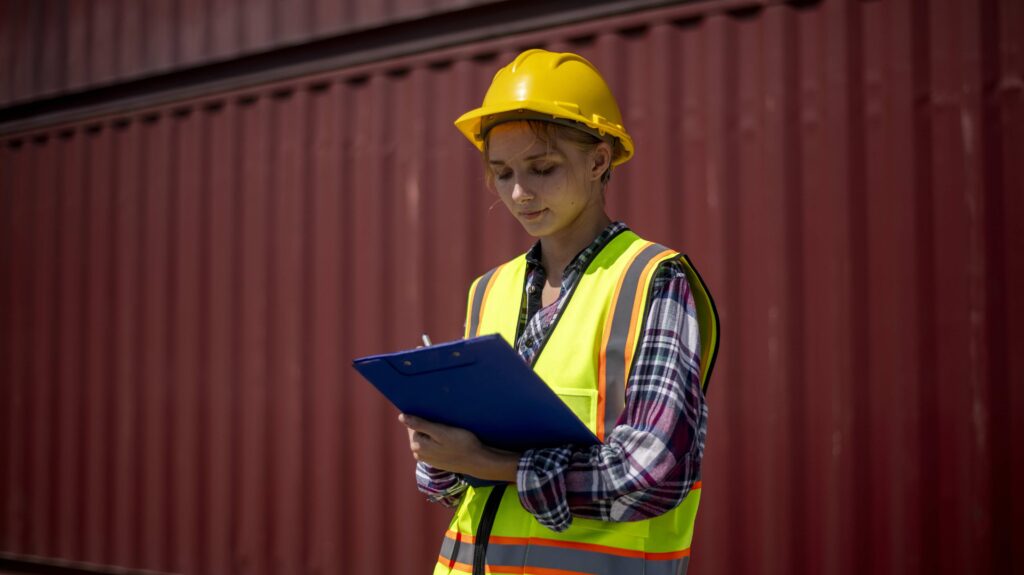The construction industry is known for its fast pace, complex projects, and constant demand for attention to detail. From project management to client communication, the workload can be overwhelming for construction professionals. As a result, many are turning to virtual assistants (VAs) to help lighten the load and streamline their operations.
Virtual assistants in the construction industry are not just administrative helpers; they play a crucial role in managing day-to-day tasks, improving efficiency, and allowing construction professionals to focus on their core competencies. In this blog, we’ll dive into the role of a virtual assistant in the construction industry, the specific tasks they handle, and how they can be an asset to your business.

How Virtual Construction Assistants Help or Are Needed
The construction industry is evolving, with increasing competition and the demand for higher efficiency. Construction professionals are often bogged down with repetitive administrative tasks that take time away from more critical activities, such as project management and client relations. This is where virtual assistants come into play.
By delegating non-core tasks to VAs, construction professionals can focus on what they do best—overseeing projects, managing teams, and ensuring client satisfaction. The growing need for remote work solutions and cost-effective support has made virtual assistants a popular choice in the construction sector.
Key Roles of a Virtual Assistant in Construction
Virtual assistants can take on a variety of roles within the construction industry, each designed to support the business’s unique needs. Here are some of the primary roles they play:
1. Administrative Support
Administrative tasks are often time-consuming and can detract from more critical functions. VAs can handle numerous administrative duties, allowing construction professionals to stay organized and efficient. Key tasks include:
- Email and Calendar Management: A VA can manage your inbox, sort through emails, and schedule meetings, ensuring that you stay on top of your communications and commitments.
- Document Preparation: From creating project proposals to drafting contracts, VAs can handle document preparation, ensuring that your paperwork is professional and accurate.
- Data Entry: Keeping track of project data, updating records, and maintaining databases are essential for smooth operations. A VA can manage these tasks, keeping your information current and accessible.
2. Project Management Assistance
While VAs may not be on-site, they can significantly assist with project management from a remote standpoint. They can help keep projects on track by handling the following tasks:
- Task Coordination: VAs can help assign tasks, track progress, and update timelines, providing the project manager with the necessary support to keep the project moving forward.
- Vendor Coordination: Whether it’s ordering materials or following up on deliveries, VAs can handle the logistics of vendor coordination, reducing the time spent on procurement tasks.
- Progress Reporting: VAs can compile progress reports, gathering updates from various sources and presenting them in an easy-to-understand format, keeping everyone informed without adding to your workload.
3. Client and Customer Support
Maintaining strong client relationships is key in construction, but it can be challenging when you’re juggling multiple projects. Virtual assistants can help manage client interactions, ensuring that communication remains consistent and professional. Tasks include:
- Handling Inquiries: VAs can respond to initial client inquiries, gather information, and set up appointments, ensuring that potential clients receive prompt and professional responses.
- Follow-ups and Updates: Keeping clients informed about project progress is essential. VAs can send updates, schedule check-ins, and ensure clients are kept in the loop.
- Feedback Collection: After project completion, VAs can manage feedback collection, send surveys, and compile client testimonials, providing valuable insights for improving services.
4. Marketing and Social Media Management
A strong online presence is vital for any construction business looking to attract new clients and showcase their work. However, managing social media and marketing efforts can be time-consuming. Virtual assistants can take over these responsibilities, including:
- Content Creation: VAs can create engaging content for your social media channels, including posts, images, and videos that highlight your projects and expertise.
- Social Media Management: From scheduling posts to responding to comments and messages, VAs can handle your social media presence, keeping your audience engaged and your brand active online.
- Email Marketing: VAs can manage your email campaigns, creating newsletters and promotional emails that keep your audience informed about your services and latest projects.
5. Financial and Bookkeeping Tasks
Financial management is crucial for the success of any construction business. Virtual assistants with bookkeeping skills can help maintain financial records, manage invoices, and track expenses, providing you with accurate financial data to guide your decisions. Specific tasks include:
- Invoice Management: VAs can create and send invoices, follow up on overdue payments, and ensure that your billing process runs smoothly.
- Expense Tracking: Keeping track of expenses is essential for maintaining budgets and ensuring profitability. A VA can log expenses, categorize them, and maintain accurate records.
- Payroll Support: If managing payroll is taking up too much time, a VA can assist with processing timesheets, calculating pay, and managing payments.

The Benefits of Hiring a Virtual Assistant in Construction
Hiring a virtual assistant offers numerous benefits to construction professionals, including:
1. Increased Efficiency
By delegating routine tasks to a VA, you can focus on higher-priority activities that directly impact your business’s bottom line. This leads to increased productivity and more efficient use of your time.
2. Cost-Effective Support
Hiring a full-time, in-house employee can be costly, with expenses including salary, benefits, and office space. Virtual assistants provide a flexible and cost-effective alternative, allowing you to pay only for the hours worked or specific tasks completed.
3. Scalability
As your business grows, your needs will evolve. Virtual assistants offer the flexibility to scale their services up or down based on your current workload, making them an ideal solution for businesses experiencing growth or seasonal fluctuations.
4. Access to Specialized Skills
Virtual assistants often bring a range of skills and expertise, from administrative support to marketing and bookkeeping. This allows you to access specialized skills that may not be available in-house, enhancing your business’s capabilities.
5. Improved Work-Life Balance
Construction professionals often work long hours, with little time for personal activities. By delegating tasks to a VA, you can reclaim some of your time, reducing stress and improving your work-life balance.
Choosing the Right Virtual Assistant for Your Construction Business
To maximize the benefits of a virtual assistant, it’s essential to choose the right professional for your needs. Consider the following tips when hiring a VA:
- Identify Your Needs: Start by listing the tasks you want to delegate. This will help you identify the skills and experience required in a virtual assistant.
- Check References and Reviews: Look for VAs with positive reviews and references from previous clients in the construction industry. This will give you confidence in their ability to handle the specific demands of your business.
- Test Their Skills: Consider giving potential VAs a small task or project to test their skills, communication, and ability to meet deadlines. This can help ensure they’re the right fit for your business.

Conclusion
Virtual assistants are transforming the way construction professionals manage their businesses. By taking on a wide range of tasks, from administrative support to client communication and marketing, VAs allow construction professionals to focus on what truly matters—delivering high-quality projects on time and within budget.
Understanding the role of a virtual assistant in the construction industry is the first step towards leveraging their skills to enhance your business. Whether you’re a small contractor or a large construction firm, virtual assistants offer the flexibility, efficiency, and cost-effective support needed to stay competitive in today’s fast-paced industry.
Ready to see how a virtual assistant can benefit your construction business? Contact us at Virtual Construction Assistants to learn more about how we can support your unique needs and help you achieve your goals. Let’s build success together!
